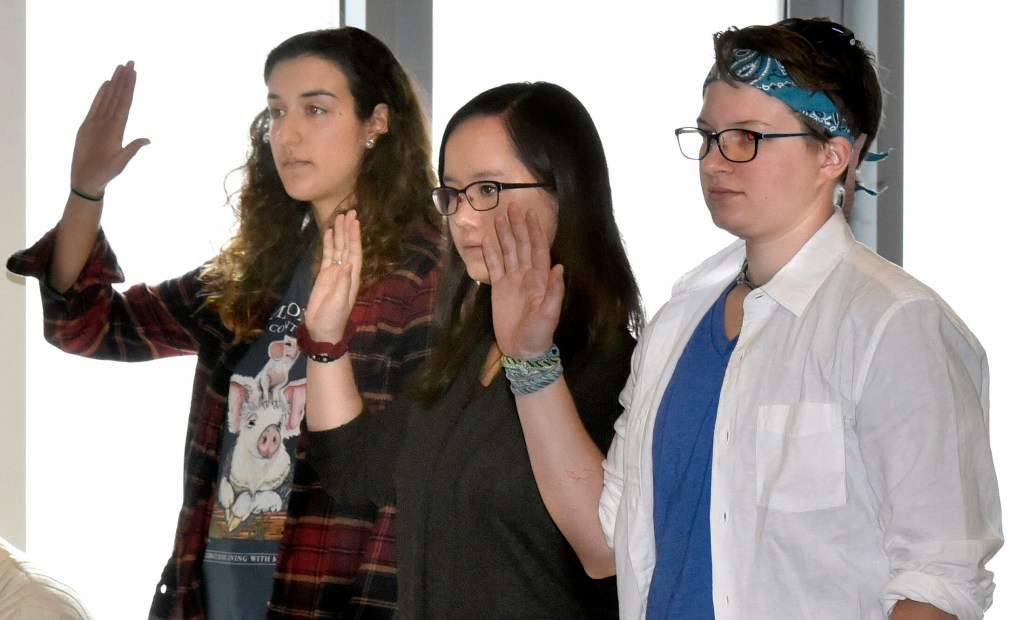At hearings Wednesday in Waterville, Colby College students whose right to vote is being challenged faced a series of inane questions: Where is your car registered? How is it insured? Where is your bank? Do you have a bedroom in your parents’ house?
They heard just one relevant one: Where do you live?
When it comes to voting rights, that’s what matters. When you register to vote then cast a ballot in Maine, the law says you have to do so in the municipality where you have established residence, defined as “that place where the person has established a fixed and principal home to which the person, whenever temporarily absent, intends to return.”
Simply put, if you live somewhere and intend to live there for the time being, that is your residence.
The Supreme Court has said that is true whether you have lived in that residence for 20 years, just moved in, or as in snowbirds and college students, only live there for part of the year.
You never hear about that being a problem with people who live half the year in Florida but vote here. And no one would ever question the voting rights of someone who moved into an apartment from the next town over.
But college students represent a large voting bloc, particularly in a smaller municipality like Waterville or Lewiston. They are also more liberal than other groups.
That has made them a target of conservatives who don’t want to see students sway Maine elections. On several occasions, Republican leaders here have spread the fiction that college students are voting illegally, and they have used their somewhat transitory status to muddy the waters.
And while they have no legal standing or evidence of wrongdoing, the claims serve to discourage college students from participating in elections.
In 2016, then Gov. Paul LePage put his support behind erroneous claims about student voting rights made by an anonymous flier distributed in Lewiston right before the election. He said his administration would target student voters after the election.
LePage should have known better. In 2011, his secretary of state investigated alleged student voter fraud at the behest of the state Republican Party chairman, Charlie Webster. He found nothing.
A year later, Webster bizarrely claimed that busloads of “black people” were being brought to Maine to vote — so maybe this is one lesson the party doesn’t care to learn.
The case in Waterville began when Mayor Nick Isgro, now vice chairman of the Maine Republican Party, challenged student votes because of an easily explained misunderstanding over college addresses. Without the challenged votes, a referendum to ban retail plastic bags — which Isgro vehemently opposed — would have failed.
The challenges have been posed as a check on voting integrity. But this isn’t a standalone event — it is the latest in a series of attacks on the voting rights of Maine residents.
When it comes to voting, it doesn’t matter where Maine’s college students were born. It doesn’t matter whether they’ll stay here after graduation — though we should hope that they do.
And no, it doesn’t matter where they register their car. People who establish residency are required to register their vehicle here within 30 days — but failing to do so is a violation of the laws governing vehicle registration, not voting. It is a traffic infraction requiring a $50 fine, not the loss of a constitutional right.
What matters is where the students live. The Colby students clearly live in Waterville. The students living on campuses throughout the state clearly live in Maine. They are eligible to vote here. Full stop.
(Editor’s note: An earlier version of this editorial misstated the status of Waterville’s plastic bag ban. The vote on the ban has been certified by the City Council, and it will go into effect Sept. 1.)
Send questions/comments to the editors.



Comments are no longer available on this story